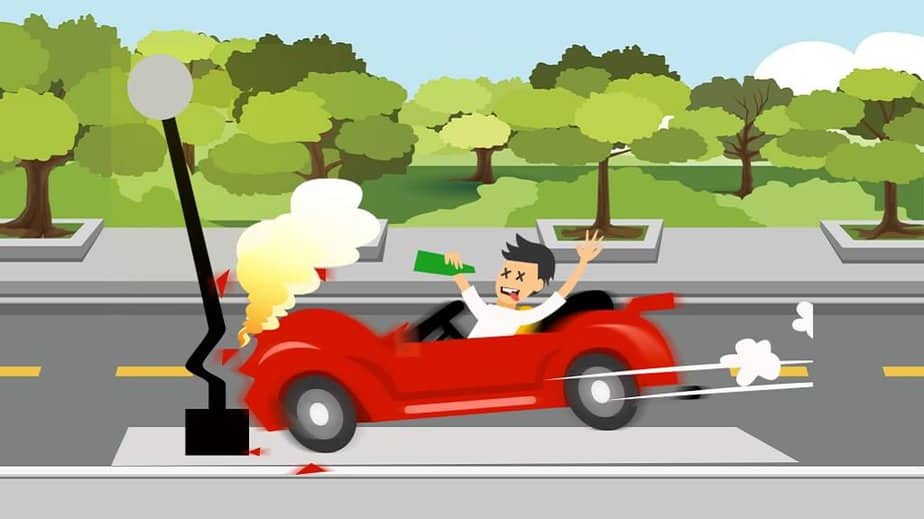Is a DUI or DWI a felony or a misdemeanor?
Generally, driving under the influence of alcohol or drugs (DUI) is a misdemeanor in the case of a first-time conviction. Depending on the state, DUI jurisdiction may differ. DUI can be charged as a felony crime, especially in the case of repeated offenses of driving under the influence.
In all states of America, driving under the influence is a serious traffic offense or misdemeanor. Depending on the seriousness of the circumstances and other factors, the charges can be raised from a standard misdemeanor DUI to a felony DUI.
Implications of a DUI or DWI Offense
A DUI offense has far-reaching consequences beyond the legal implications. It can affect your driving points, insurance rates, and the status of your driver’s license.
In some cases, a DUI charge involving injury, death, rash driving, or destruction of public property is punishable by a prison sentence or jail.
Consuming alcohol beyond the legal limit also puts your health at risk. The authorities may subject you to an alcohol evaluation test to check your drinking habits and send you to rehabilitation programs.
DUI puts the lives of others and yours at risk by causing accidents on the road and injuries.
DUI or DWI can be charged as a misdemeanor or felony.
Differences between Felony and Misdemeanor
Crimes are classified into different categories. Most state criminal systems across the United States divide their crimes into infractions, misdemeanors, and felonies.
Infractions
An infraction is a crime that involves minor violations of a rule, ordinance, or law. No jail term is associated with an infraction unless repeated violations exist. It will not appear on a criminal record.
Misdemeanors
Misdemeanors are more serious than infractions. It is a criminal offense with a potential jail term of less than one year.
Felony
All serious crimes are treated as felonies. The federal government’s laws define a felony as any crime with more than one year’s punishment. A sentence of more than one year served in a federal or state prison will be considered a felony.
What does “DUI” mean?
Driving under the influence (DUI) is the crime or offense of driving or operating a motor vehicle while impaired by alcohol or other drugs. Such a situation makes the driver incapable of operating a motor vehicle safely.
Every state has specific laws designed to convict drunk driving. Such drivers have to undergo an alcohol test. If the BAC level is above 0.8 percent, the driver can be charged with a DUI misdemeanor or a felony DUI, depending on other factors.
In some states like Georgia, all DUIs conviction is charged with a felony. California DUI law classifies most DWI charges as misdemeanor offenses in most cases.
Factors that can make DUI a felony
Generally, the judges or agents can charge DUI as a misdemeanor or a felony. DUI may be charged as a felony if any of the following conditions exist:
Serious Negligence of Driving Laws
Jurisdictions in most states elevate a DUI case to a felony offense when multiple violations of traffic rules happen along with the DUI.
If you are driving under the influence and do not have a valid license, your offense may be considered a felony.
It is unacceptable for you to be caught for DUI when your driving license is revoked, suspended, or restricted.
Physical Injury
If someone is killed or injured in an accident caused by an intoxicated driver, the driver will be charged with a DUI felony. If another driver rear-ends the intoxicated driver at a stop sign, the driver may escape a felony charge but can be charged with a misdemeanor instead.
Repeated DUI Offenses
If there are repeat incidences of DUI driving despite previous convictions, the driver may be charged with a DUI felony.
If your driving license was degraded, restricted, or penalized for driving under the influence, it is a bad reputation for you. If you are again caught for DUI, you may be charged with a DWI/DUI felony.
Suppose authorities ordered you to install an ignition interlock device on your vehicle because of a previous DUI. In such a condition, you may be charged with a DUI felony if you are caught drunk driving again.
High Blood Alcohol Content
A blood alcohol content (BAC) level of.08 percent is the standard impairment level in all states. Any violation of traffic rules by a driver with high levels of BAC may be charged as a DUI felony or a misdemeanor DUI.
Most states have set BAC levels at which a person can be charged with a DUI felony. Typically, this level is around 0.16 percent.
DUI with Children in the Vehicle
DUI with children in the vehicle is a serious offense. Most states have specific laws that recommend a DUI felony charge when there are children in the vehicle. Usually, all children under the age of fifteen are considered children.
The Final Thought
Generally, it’s possible to be convicted of a DUI as a felony or a misdemeanor. A felony sentence is given for DUI when the offender kills or seriously injures another person.
In general, driving while intoxicated is a felony if it causes substantial harm or death or if the offender has prior DUI convictions or felony convictions.
Repeated DUI convictions can also elevate a DUI to a felony. In most states, first and second DUI offenses are misdemeanors, but a third or subsequent conviction is a felony.
Some states would make a DUI a felony if the driver had a high-level BAC while transporting children.
Seek help from a criminal defense attorney or DUI lawyer, if you are caught DUI driving. An experienced DUI defense lawyer may find loopholes in felony DUI charges and save you from DUI arrest.
Read next: Breath Alcohol Test
Article Source:
- A Guide to Sentencing DWI Offenders (2nd Edition, 2005)
- https://criminal.findlaw.com/criminal-law-basics/what-distinguishes-a-misdemeanor-from-a-felony.html
- http://www.ncsl.org/research/transportation/criminal-status-of-state-drunk-driving-laws.aspx
- https://www.alcohol.org/dui/
